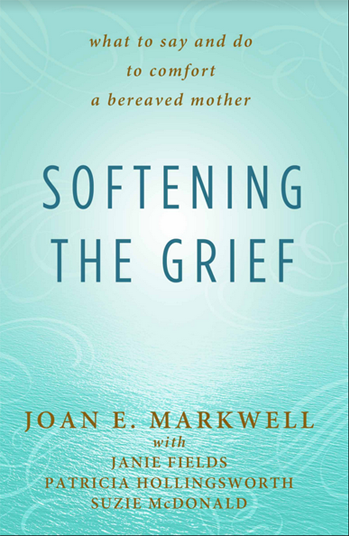That statement implies; you talk to us. We talk to you. You understand us. We understand you. No way. Not for mothers who have lost a child.
Communicating involves the interchange of thoughts, opinions or information by speech, writing or signs. This places the bereaved mother on an unequal playing field. The interchange is unbalanced because her thoughts are driven by a grief which takes over her mind and envelops her total thought process.
The opinions she forms are made quickly with little thought given because she cannot think through a choice, nor does she want to. Reasoning is not a strong point, as most of her thinking pattern lays with thoughts of her child and the trauma of his/her loss.
She may only be able to speak to her closest friends or relatives or those she must to resume her role in life. She may not want to answer the phone. Speaking is such an effort. There is just no energy for it. You see, grieving is a tremendous physical drain on the body. She may even shop at night so as not to run into someone she knows.
The signs the bereaved mother will give off as a means of communication will really throw you off. Sure, our hair is combed, or clothes are neat, we look well groomed, we’re doing great. Oh, the foolers we are. Good on the outside, crumbling on the inside. Always putting up a good front, afraid the display of turmoil going on within our minds will be daunting to others. So it is held in waiting until we can once again be in a safe place and can then act out on our emotions.
For the bereaved mother communicating in any form can be a slow, painful and very agonizing piece of her grieving journey. It is not a journey to recovery because there is never a recover from loosing a child. There is a return to more normalcies but it can appear many times to be so “out of reach”.
Communication can be such a sweet thing for all of us. Your
understanding that our timeline and our form of communicating drastically changes after loosing our children can in it self be a most beautiful term of the word.
We need you in our lives. You want us back in your lives as someone more like the person we used to be. A key to this: Communication. We know you are not sure what to do with us. We know it is impossible for us to tell you how we feel. The Compromise: Understand that there is no way for us to express to you at the moment you ask us how we feel. Maybe it has been quite sometime. Therefore we play dumb. We just say fine. You walk off thinking “Well, she’s quite, but she’s fine. Please realize that if your question refers to our child; we are not fine.
So instead, let’s just get the “elephant” out of the room and if we say, “fine”, you say this. “I know you look fine but surely you could be “finer” and I think of you often”. We will both feel better. You will walk away feeling good because you gave comforting words. The mother feels good because she truly believes you care. Win, Win!
Make yourself aware of the many ways you can help the bereaved through the trauma of losing a child. Our book, “Softening the Grief” will equip you to offer comfort and support to the grieving in your world.
Joan E
If you are a bereaved mother, share your story of dealing with “others” while going through the grieving process.
If you know a grieving mother, share your story so we can better teach you to help her through the grieving process.
Love 0$
Compassion 0$
Below is a picture of Cindy’s two boys, a chicken, and Monk.




My all time favorite picture!
good one